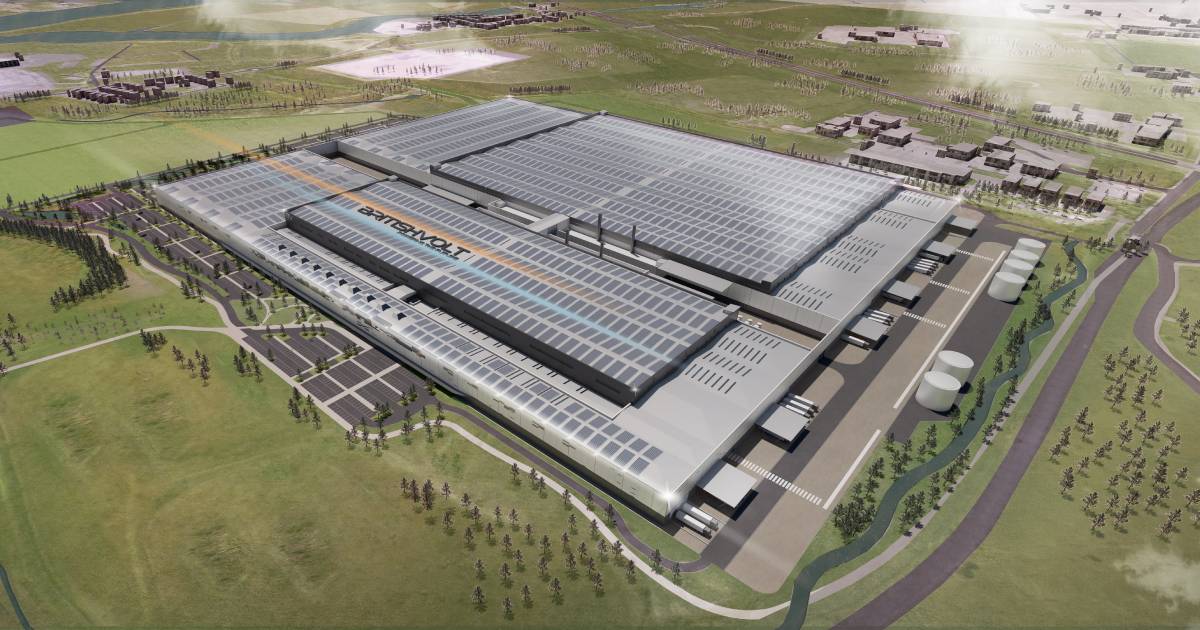The North East's key role in the UK's green industrial revolution
29 October 2021 | By: Newcastle University | 2 min read
The North East is emerging as a Green Energy Powerhouse, delivering sustainable growth. In this COP26 article, Professor Colin Herron tells us about the strategic role the region plays in the UK's green revolution.
The UK's first gigafactory is just the start in the North East
Nissan is building the first-ever mass-produced Electric Vehicle (EV) in Europe in its plant in Sunderland. Envision AESC stepped up to build an associated battery plant.
We also rolled out one of the first EV charging infrastructures in Europe, here in the region. We've reached a milestone, and we are now moving up a gear.
Events such as Britishvolt’s ground-breaking ceremony, Nissan’s announcements, and the activities of the Offshore Renewables Energy Catapult are creating the North East ‘Power Plant’.
The region is now central to two key pillars of net zero - power generation and energy storage. Power generation has always been part of the North East's heritage, but it was not clean energy.
The beginning of the green industrial revolution
Manufacturing and transport require clean energy to operate. However, they also need to be profitable.
Therein lies the problem. We need to generate enough power to replace 39 million internal combustion vehicles. Meanwhile, we must also phase out the use of fossil fuels.
We need a whole new supply chain and inward investment. The goal is to make the UK sustainable when it comes to supply and intellectual property.
This is the biggest task since the Industrial Revolution. In fact, we are creating a new industrial revolution based on data, behaviours, and research.
The biggest challenge of the net zero transition
We are on a journey to achieve net zero and climate change is a race we must win. This win requires a lot of effort, ability, and desire. History has shown these are all embedded in our region.
We want to reverse the Industrial Revolution without destroying the existing automotive economy. This will take time and care.
In the North East, we are ready for the challenge, with both our existing assets and the new battery gigaplants. A new net zero ecosystem is being created. It will involve new skills, new research, new methods, and new attitudes.
We must above and beyond what is required. Only making electric vehicles is not enough - we have to de-carbonise the whole supply chain.
The North East has the expertise and assets to seize the net zero opportunities and deliver sustainable and inclusive growth.
However, the current assets are about to grow. We need thousands of people to operate them, and only a few understand the new technology.
We need people at all levels of ability, ranging from NVQ to further levels of higher education (L2 to L8). We need to get children excited about the possibilities of the science, technology, engineering, and mathematics disciplines. We need to retrain individuals and attract new talent in this growing industry.
The North East bringing research and resources together
“Out of intense complexities, intense simplicities emerge.”
This is where our universities come into play by solving complex problems. The North East Battery Alliance and the Driving the Electric Revolution Industrialisation Centres bring together research and resources.
Newcastle University signed a Memorandum of Understanding with Northumbria and Durham University, and British Volt who are constructing a lithium-ion battery gigaplant. The universities will provide support in education and R&D to enhance innovation.
Newcastle University works with the North East Battery Alliance, training providers, the government, and other universities to create a joined-up delivery plan. The region is also working with the Faraday Institution and has opened its first regional office.
Our vision is that any child or adult will have access to an education route and fulfil their dreams and aspirations without having to leave the region. Our region wants to attract ambitious people that will help build together the new industrial revolution.
The COP26 conference provides a focal point for collective action on climate change. In our COP26 blog series, you can learn more about climate change-related projects taking place at Newcastle University and our wider community.
About Professor Colin Herron
.jpg?width=182&name=Colin%20Herron(2).jpg) Professor Colin Herron is the MD of Zero Carbon Futures at Newcastle University. He has almost 50 years of experience in the automotive sector starting as an apprentice toolmaker. He then spent 17 years in engineering at Nissan, following a spell in the public sector.
Professor Colin Herron is the MD of Zero Carbon Futures at Newcastle University. He has almost 50 years of experience in the automotive sector starting as an apprentice toolmaker. He then spent 17 years in engineering at Nissan, following a spell in the public sector.
His current role is to develop the whole battery ecosystem in the North East as part of the Faraday Institution and Newcastle University. He aims to make the region a recognised centre of excellence.
